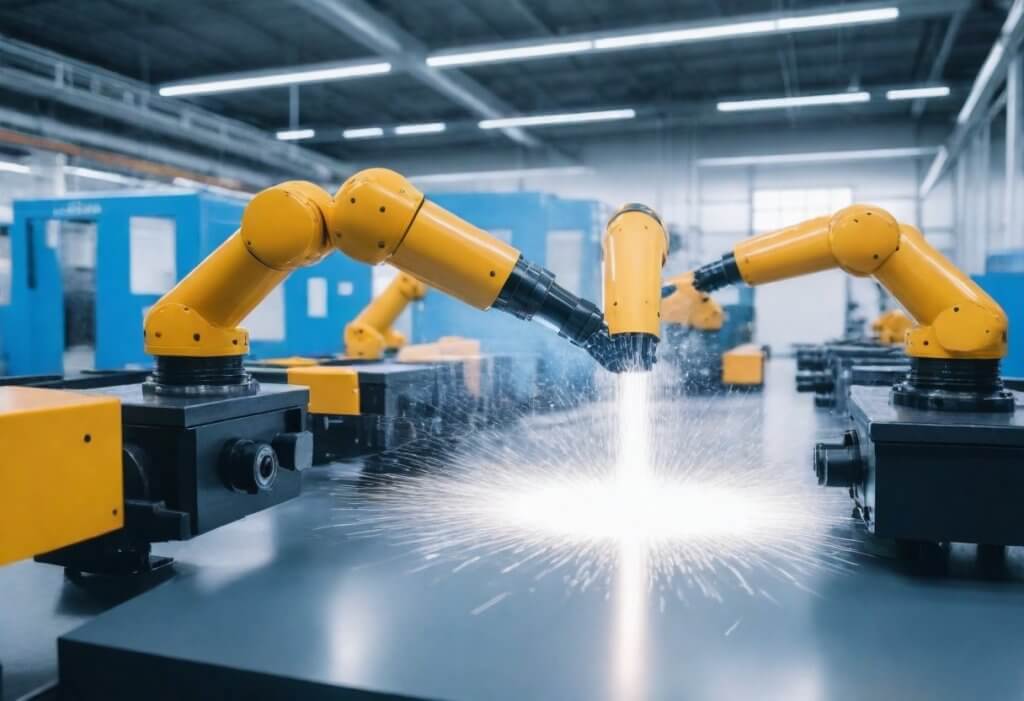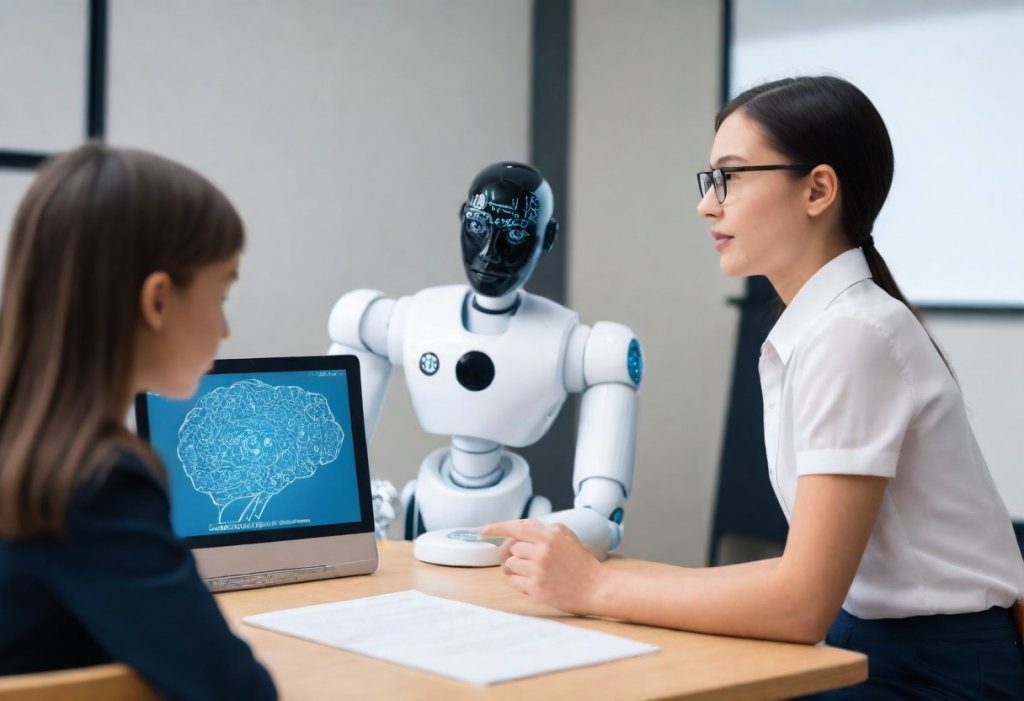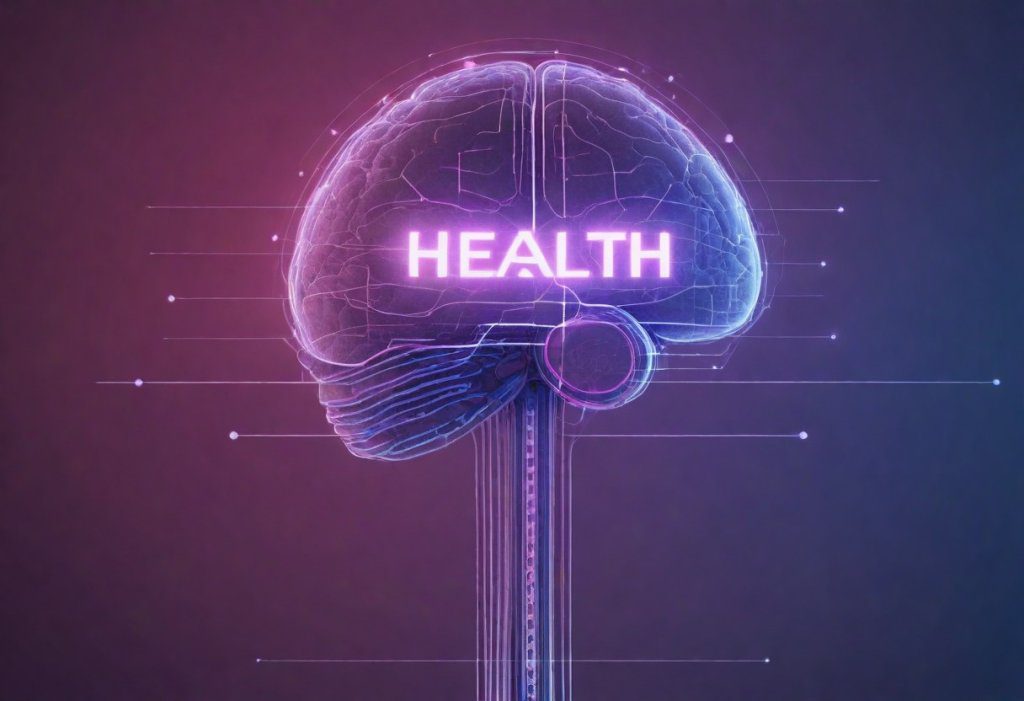
In the next 5 years, AI is expected to revolutionize various sectors, making significant advancements that will reshape how we live and interact with technology. Let’s explore the potential impact of AI in manufacturing, education, economic development, daily life, safety and security, space exploration, healthcare, and the emergence of artificial general intelligence (AGI).
AI in Manufacturing
In manufacturing, AI goes beyond simple automation by using predictive models to optimize production processes. These models collect data from sensors to forecast machine performance, allowing for advanced planning of maintenance and repairs.

Applications of AI in Manufacturing:
- Quality control: AI systems analyze video footage to detect defects in products, ensuring higher quality and less waste.
- Resource allocation: AI optimizes the allocation of resources for maximum efficiency.
- Supply chain management: AI helps manage the supply chain by predicting demand and optimizing logistics.
As AI becomes more sophisticated, its applications in manufacturing will become more diverse, leading to improved efficiency and quality control in production processes.
AI in Education
In the next 5 years, artificial intelligence (AI) will revolutionize education by providing personalized learning experiences tailored to individual students’ needs and abilities. Intelligent tutoring systems will offer customized guidance, making learning more engaging and effective.

Integration of AI in Education:
- Personalized Learning: AI will adapt education to each student’s unique abilities.
- Intelligent Tutoring Systems: AI algorithms will offer tailored guidance for students.
- Adaptive Learning Platforms: Machine learning will analyze student progress for targeted interventions.
AI in education will bridge accessibility gaps, offering quality education to remote areas and promoting inclusivity. Educators will need to adapt to using AI tools effectively, creating a symbiotic relationship between human instructors and intelligent technologies.
Economic Development and Job Creation
AI systems can automate repetitive tasks, allowing humans to focus on creative work, leading to increased productivity and economic growth.

Impact on Jobs:
- New Job Creation: AI will create job opportunities in data science, machine learning, and AI development.
- Job Losses: Some tasks may be automated, leading to job displacement in certain sectors.
- Adapting to Change: Workers can learn new skills to adapt to the changing job market facilitated by training programs.
As AI becomes more integrated into the economy, individuals and organizations can benefit from its potential to create new job opportunities and enhance productivity.
AI and Our Daily Lives
AI is becoming more prevalent in daily life, assisting with tasks like cleaning, cooking, and scheduling. Smart appliances and virtual assistants automate chores, making life more efficient.
Benefits of AI in Daily Life:
- Automating tasks: AI can help with scheduling appointments, planning meals, and reminders.
- Efficiency: Smart devices can save time for more meaningful activities.
- Privacy concerns: People worry about data security, sharing, and over-reliance on AI.
As AI technology advances, its integration into daily life will continue to grow, offering convenience and streamlining tasks.
Safety and Security
AI technologies such as advanced surveillance systems and predictive analytics play significant roles in safeguarding communities through continuous monitoring and analysis of data.

Advancements in Cybersecurity:
- Swift threat detection: AI can swiftly detect and respond to potential threats, bolstering security infrastructure.
- Thwarting cyber threats: Machine learning algorithms counter new attack vectors, ensuring online system resilience.
- Efficient emergency responses: AI algorithms streamline detection of natural disasters for quicker and precise responses.
Moreover, AI-driven diagnostics in healthcare enhance patient safety through early illness detection and personalized treatment plans.
Space Exploration and Robotics
In the realm of space exploration, AI plays a crucial role in navigating the harsh environments of space. From controlling rovers on Mars to managing space colonies, AI is at the forefront of technological advancements in space exploration.
Applications of AI in Space Exploration:
- Rover Exploration: AI-powered rovers can search for signs of life on other planets and collect samples for analysis.
- Robotic Arms: AI can control robotic arms on space stations, enabling astronauts to perform tasks remotely.
- Complex Tasks: AI may design spacecraft, perform repairs in space, and create simulations for space missions.
Additionally, AI could aid in the search for extraterrestrial life by analyzing data from telescopes and identifying patterns that may indicate intelligent life beyond Earth.
Health Revolution
In the next five years, AI will revolutionize the health sector by enhancing medical imaging analysis, disease diagnosis, personalized treatments, and drug discovery. AI will assist doctors in surgery, provide real-time data for effective decision-making, and develop virtual assistants for patient care.

Potential Impact of AI in Healthcare:
- Accurate Diagnosis: AI will analyze medical images and diagnose diseases quickly and accurately.
- Personalized Treatments: Patients will receive treatments based on their genetic makeup and medical history.
- Drug Discovery: AI will aid in finding new compounds for treating diseases through vast data analysis.
- Surgical Assistance: Doctors will receive real-time data during surgery to improve patient outcomes.
- Virtual Patient Assistants: AI-powered assistants will help patients manage their health, track symptoms, and provide treatment information.
Furthermore, AI will enable remote patient monitoring, alerting doctors of any changes in a patient’s condition, especially beneficial for chronic conditions. The future of AI in healthcare holds tremendous potential for improving patient care and outcomes.
Artificial General Intelligence
In the next few years, Artificial General Intelligence (AGI) is poised to make significant strides, potentially reaching a level of sophistication where AI systems can understand and apply knowledge across diverse domains. This represents a monumental leap in the cognitive capabilities of machine algorithms, particularly in deep learning.
Driving Forces Behind AGI:
- Continuous Development: Neural networks continuously fueled by vast data sets and enhanced computational power enable AI to discern patterns and make sense of complex information.
- Adaptability: The continuous learning process contributes to the development of adaptable and flexible AI models capable of handling various tasks.
- Integration into Various Sectors: The integration of AI into sectors ranging from healthcare to finance paves the way for the journey towards AGI.
As AI systems become more proficient at real-world tasks, they exhibit a broader spectrum of problem-solving abilities, showcasing the versatility that is a cornerstone towards achieving AGI. This ability to generalize and apply knowledge in novel situations is crucial for the advancement of AI.
Collaboration between Humans and AI:
- Hybrid Evolution: The future may see a hybrid evolution where AI collaborates with human decision-making, fostering a symbiotic relationship between human creativity and AI efficiency.
- Ethical Considerations: Ethical and responsible development are essential components of the maturation of AI systems as they approach a level of intelligence comparable to humans.
- Transparency and Accountability: Addressing issues related to bias, transparency, and accountability will be crucial in ensuring the harmonious integration of AGI into various sectors.
As the technological advancements in AI progress, the ethical implications and considerations become increasingly significant. Striking a balance between technological innovation and ethical responsibility will be paramount in the successful integration of AGI into society.
If you found this information intriguing, feel free to share your thoughts in the comments section below. For more fascinating insights, be sure to watch the video mentioned on the screen. Thank you for reading!






Leave a Reply